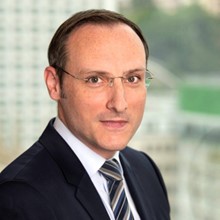As new U.S. tariffs take effect, St. James’s Place (SJP) is advising investors across the region to stay focused on long-term diversification strategies and remain vigilant amidst rising global trade tensions.
The 10% tariff announced by U.S. President Donald Trump on most imported goods—impacting countries including China and Japan—came into effect on 5 April, with reciprocal tariffs expected from other nations starting 9 April. Governments including Canada, Brazil, and the EU have already signalled countermeasures, raising concerns of a renewed global trade conflict.
The relatively low tariffs imposed on UAE, coupled with the country’s manageable export dependence to the United States, implies that it is one of the relatively less directly impacted markets. There could however be larger secondary risks emerging from the wider effects of a potential global disruption of supply chains, reduction in trading activity as well as a recession possibly coupled with rising inflation, i.e. stagflation, globally, presenting challenges to many if not all sectors, including energy/commodity exporters which may have to deal with heightened price volatility in light of demand uncertainty.
Commenting on the development, Martin Hennecke, Head of Asia and Middle East Investment Advisory at St. James’s Place, said: “While the headlines around U.S. tariffs are undoubtedly unsettling, it’s critical to understand the broader picture. The U.S. now accounts for just 11% of global trade, having been overtaken by China in 2013. As long as other regions maintain constructive trade relationships, the global fallout may be more limited than feared.”
In a recent gathering of trade leaders from Japan, South Korea, and China, the trio pledged to strengthen trade ties—an encouraging sign of multilateral cooperation that could help offset the impact of U.S. protectionism.
Hennecke notes that sharp declines in equity markets generally create high levels of behavioural risk, such as the temptation for knee-jerk reactions of selling investment positions at potentially unfavourable prices, as typically investors tend to be more inclined to sell at market low points and buy at market high points. These behaviours often have negative effects on long term return outcomes.
For investors in the Middle East, Hennecke emphasises the importance of reassessing exposure: “We have long advocated for greater regional diversification, especially amid high U.S. market valuations and tech-sector concentration risk. Recent developments—from Deepseek’s market disruption to China’s accelerated progress in AI, EVs, and robotics—have only strengthened the case for a balanced, global approach.”
SJP Middle East encourages investors to maintain well-diversified portfolios, minimise short-term speculations and work closely with financial advisers to implement robust risk management strategies. With increasing volatility in U.S. policy, Hennecke says a thoughtful, globally diversified portfolio is more important than ever.
“Investors shouldn’t panic, but they shouldn’t be passive either. Now is the time to think globally and plan wisely,” he added.











